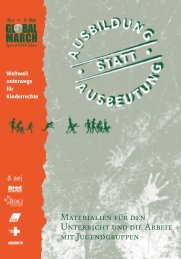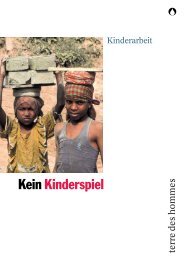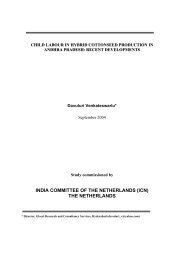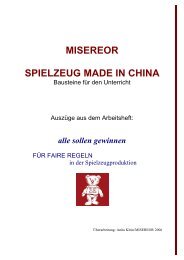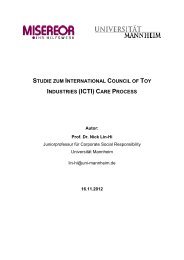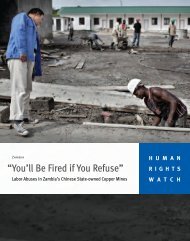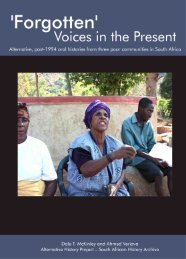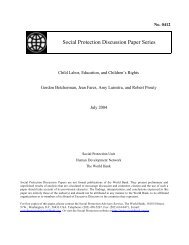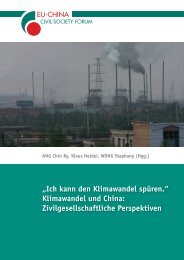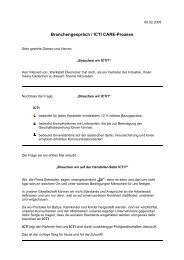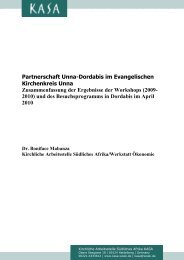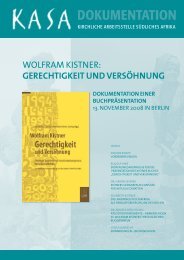Namibia country report
Namibia country report
Namibia country report
- No tags were found...
Create successful ePaper yourself
Turn your PDF publications into a flip-book with our unique Google optimized e-Paper software.
5.2.7 SkillsAlthough many FURS beneficiaries were satisfied with their ‘fate’ on resettlement farms, theiragricultural productivity was constrained by several factors. Inadequacy of appropriateskills was a factor mentioned by many beneficiaries. Only a few had basic skills in general farmmaintenance, animal husbandry and business management, and many lacked knowledge ofappropriate farming practices/methods. Maria, a retired widow, was allocated a portion ofthe farm Danel. She felt that she did not have sufficient skills to farm, and that governmentshould train people like her before settling them. Due to her lack of skills, she was likely tostay where she was rather than develop as a farmer. She arrived with 60 cattle and 14 goatsin 2000, and had only a few more at the time of the survey.Apart from some support provided recently by the Emerging Farmers Support Programmeinitiated in 2007 to support AALS and FURS beneficiaries, FURS beneficiaries did not receiveany post-settlement support from government or any other agency. In Hardap, 75% of theFURS respondents indicated that they had never received any services in support of theiragricultural activities. While some knew where to obtain specific agricultural information,many did not. Only three were able to access farming information whenever they needed it.The other eight did not know where to access information. The Ministry of Agriculture andAgra were the most important sources of agricultural information in Omaheke and Hardap.The issue of post-settlement support will be addressed in the near future in terms of the MLR’sStrategic Plan 2006-2010, which treats provision of basic infrastructure and empowermentof communities as a separate strategic theme. The plan states that the MLR will providetailor-made pre- and post-settlement support packages which include technical advice,training and support in appropriate farming methods and agricultural practices (MLR2007: 11). At the time of writing this <strong>report</strong>, the MLR was considering proposals to provideinfrastructure development grants to FURS beneficiaries.5.2.8 FinancesTwo thirds of the farmers experienced farming-related financial and managerial problems.Most required financial assistance from various quarters (i.e. government and bank loans)to finance their farming activities, but often this assistance was not granted. To Jeremiah itseemed impossible to obtain loans to pay for infrastructural improvements. Banks requiredsecurity such as a house or an investment policy, and since the leasehold agreements withresettlement farmers were not yet in place, they could not use their land as collateral. Infact it appeared that the absence of a leasehold agreement with the MLR was the biggestobstacle facing resettlement beneficiaries. Jeremiah, who did not have a lease, was acutelyaware of the importance of a proper lease agreement:It is only when you have the papers that you have the right to get the other people offthe farm. The Ministry only talked about the 99 years agreement, but they have notgiven me any papers yet. I wanted to keep the place neat and I wanted my children alsoto farm here one day. We wanted government to give the land to us. If the land was108 ● Livelihoods after land reform: <strong>Namibia</strong> <strong>country</strong> <strong>report</strong> (2010)



